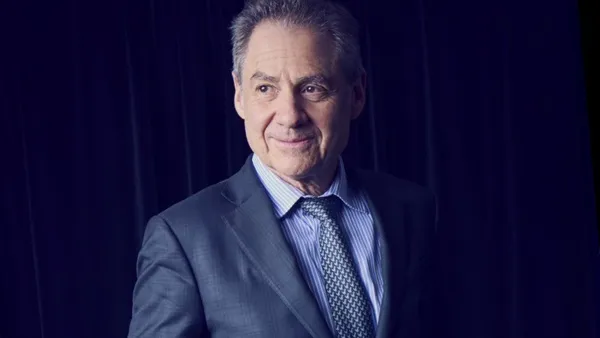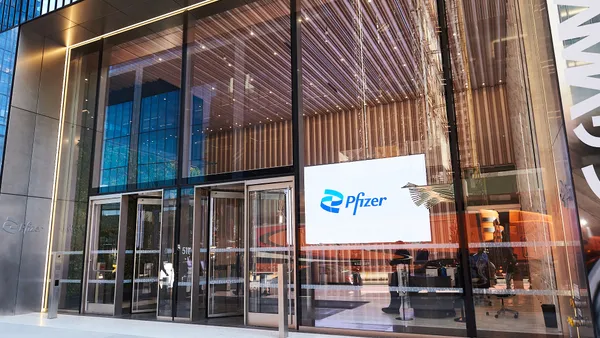So with all due caveats, asterisks, and apologies for oversimplifying what is truly a complicated, messy affair, and at the risk of sounding overly Aristotelian, I’m convinced there are only four basic ideals involved in the creation and management of an ad agency: The Clients, The Work, The Money, and The People. These four ideals are always present in every advertising agency, regardless of size, geography, discipline, or area of specialization, including those agencies in health care. As subjects, they are sprinkled liberally in virtually every conversation within and around an advertising agency. And clearly there is no denying these are all essential ingredients in the bubbling broth of the otherwise ever-changing agency business. Most significantly, I believe that an agency’s culture and prospects for long-term success are governed by the order of priority that agency leadership ascribes to these ideals. An agency that prioritizes clients over its people will be far different from one that values money above all else; and different still from an agency that believes the work itself is the most important ideal on which to focus. While this may seem academic, these distinctions have enormous implications for agency leaders, agency employees, and clients in search of long-term, productive relationships. It’s All About The Clients How many times have you heard this before? “We’re a client-focused agency." “We’re client-centric." Or “We’re all about client service." If the client is the most important ingredient in the soup of your agency’s culture, then you hopefully have a “yes, we can" and “whatever it takes" attitude infused in the organization — a vital edge in a hypercompetitive environment. And, of course, all of this can be made to sound very appealing, especially to clients. But with these positives, it’s very possible you may also have a culture that lacks a clear sense of self; one that focuses more on pleasing than performing, and on saying “yes" to every client request without addressing whether or not a given move is in the best interest of the brand. An agency like this can unwittingly burn out its people and its soul in the endless pursuit of satisfying each and every change in client direction, fancy, and demand. It’s All About The Work Some of the world’s greatest advertising agencies have built their empires around a bold creative flag, generating some of the most impressive, intrusive, and clever work the world has ever seen. Agencies where the work is king have been known to resign clients that aren’t interested in doing the kind of work to which the agency aspires. In an agency where it’s all about the work, the culture can be truly invigorating, and even intoxicating. When the work is considered the most important ideal, you can almost certainly expect great work — at least some of the time, for at least some of the clients. But because judging the work can be a subjective exercise that does not always focus on pure business results, you can also expect unwanted side effects, including oversized egos, arrogance, office politics, and power structures that compromise both internal and external relationships. In this type of environment, higher-than-normal turnover of both employees and clients is typical. Great work and confidence usually win the pitch. A bad or defensive attitude will almost always lose the assignment. It’s All About the Money With more and more advertising agencies already operating as components of larger, publically held and traded organizations, or aspiring to jackpot payoffs via acquisition, there is no question that managing the bottom line is a very important determinant of and agency’s short- and long-term business success. And with cost-consciousness and procurement playing a far stronger role in agency/client dynamics in recent years, there is no denying that agency finances are, and will remain, an integral part of the conversation. But, of course, there is a downside to making money the most important ideal in an agency’s culture. Agencies that pray to the “money god" are dominated by incessant talk of billability, revenue, and profits targets and stealthy whispers of earn outs, bonuses, and stock grants. They also tend to be parochial, paranoid places where turnover is the norm and everyone is watching out for themselves and their own slice of the proverbial pie. It’s All About The People We’ve all heard the old adage about how an agency’s greatest and most valuable assets are the ones riding the elevator every day —and it makes perfect sense. At its core, ours is a uniquely creative, inventive business, guided every day by the independent and collaborative skills of our staff. An agency that puts its people above all else can establish a culture that nurtures positive energy and yields the very best in personal commitment, creativity, and productivity. But as with the other ideals outlined above, there can be significant risks that come with creating a “people first" culture. Most notably, an agency focused on its people — and thereby somewhat less intent on the work, the clients, and the money —can become relatively soft. It can focus so much on being empathetic, kind, and/or generous to its employees that it loses a sharp, competitive edge. In this sense, the word “people" simply can’t mean “any people." Instead, the focus must be on securing and keeping high-caliber talent; an elite corps with high expectations of one another and the willingness to meet those expectations. The Ideal Concoction Having endlessly pondered the above possibilities and permutations, and having been in a leadership role within one of the largest communications networks in the world for more than a decade, I am absolutely convinced there is only one path forward — one recipe — for building an advertising agency focused on long-term growth and success: talented people, who do great work attract, win, and keep great clients. And this generates money. As a formula, this sounds insanely simple. As a day-to-day map of organizational priorities, it is far more instructive because it highlights the number one task for agency leadership: attracting, recruiting, developing, nurturing, and unleashing high-caliber, highly collaborative talent. It also highlights the critical dependencies that, in effect, turn this into a virtuous cycle: only with talented people, doing great work, can you consistently attract, win, and keep great clients and thereby consistently generate money. And only with that healthy ecosystem in place, visibly and vocally supported by like-minded individuals in senior management, can you consistently attract and reward great, talented people. As a final point, it’s worth noting that agencies that instead prioritize other ideals — The Work, The Clients, or The Money, either consciously or by default, can certainly be competitive — at least in the short term. Usually, agencies that consistently skew their attention to these ideals tend to develop a toxic undercurrent, one that eventually consumes their culture and compromises their chances at long-term success. While other ideals and challenges will always come into play, only by prioritizing great talent can an agency be truly built to endure. Ogilvy CommonHealth Worldwide Agency Ideals “There are two kinds of people in the world: the kind of people who think there are only two kinds of people in the world, and those who know better." I don’t know who coined that little ditty, but I’m reminded of it whenever I’m tempted to oversimplify or conveniently categorize things. Agencies that consistently skew their attention to these ideals tend to develop a toxic undercurrent, one that eventually consumes their culture and compromises their chances at long-term success. Expert Matt Giegerich, Chairman & CEO, Ogilvy CommonHealth Worldwide, part of the Ogilvy & Mather network and a WPP company, represents the largest assembly of creative talent in the world of healthcare communications with 65 offices across 36 countries. For more information visit ogilvychww.com.
An article from


Agency Ideals
Filed Under:
Commercialization










